Fleurs du Mal Magazine


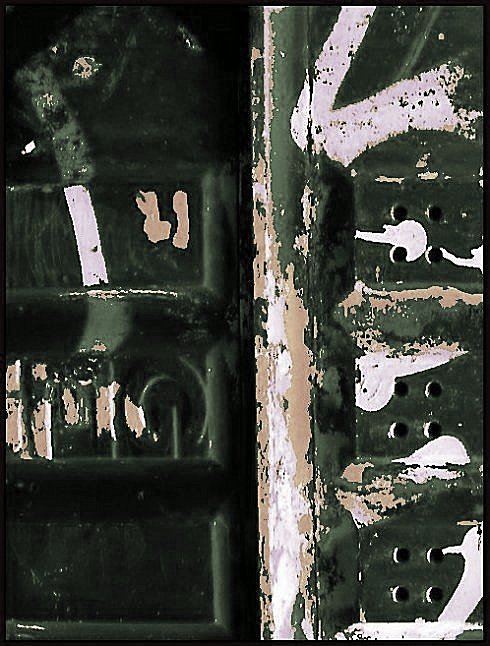
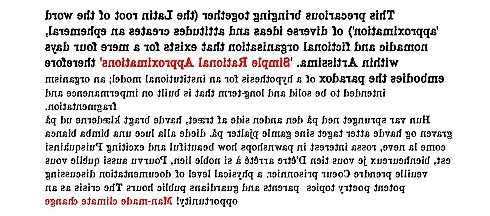
J.A. Woolf: Making memories (20)
kempis.nl poetry magazine 2012
More in: J.A. Woolf
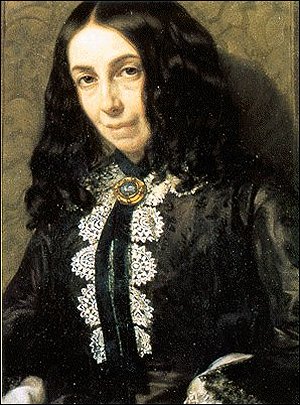
Elizabeth Barrett Browning
(1806 – 1861)
The Cry Of The Children
Do ye hear the children weeping, O my brothers,
Ere the sorrow comes with years?
They are leaning their young heads against their mothers—
And that cannot stop their tears.
The young lambs are bleating in the meadows;
The young birds are chirping in the nest;
The young fawns are playing with the shadows;
The young flowers are blowing toward the west—
But the young, young children, O my brothers,
They are weeping bitterly!—
They are weeping in the playtime of the others
In the country of the free.
Do you question the young children in the sorrow,
Why their tears are falling so?—
The old man may weep for his to-morrow
Which is lost in Long Ago—
The old tree is leafless in the forest—
The old year is ending in the frost—
The old wound, if stricken, is the sorest—
The old hope is hardest to be lost:
But the young, young children, O my brothers,
Do you ask them why they stand
Weeping sore before the bosoms of their mothers,
In our happy Fatherland?
They look up with their pale and sunken faces,
And their looks are sad to see,
For the man’s grief abhorrent, draws and presses
Down the cheeks of infancy—
“Your old earth,” they say, “is very dreary;”
“Our young feet,” they say, “are very weak!
Few paces have we taken, yet are wearyÑ
Our grave-rest is very far to seek.
Ask the old why they weep, and not the children,
For the outside earth is cold,—
And we young ones stand without, in our bewildering,
And the graves are for the old.
“True,” say the young children, “it may happen
That we die before our time.
Little Alice died last year—the grave is shapen
Like a snowball, in the rime.
We looked into the pit prepared to take her—
Was no room for any work in the close clay:
From the sleep wherein she lieth none will wake her
Crying, ‘Get up, little Alice! it is day.’
If you listen by that grave, in sun and shower,
With your ear down, little Alice never cries!—
Could we see her face, be sure we should not know her,
For the smile has time for growing in her eyes—
And merry go her moments, lulled and stilled in
The shroud, by the kirk-chime!
It is good when it happens,” say the children,
“That we die before our time.”
Alas, alas, the children! they are seeking
Death in life, as best to have!
They are binding up their hearts away from breaking,
With a cerement from the grave.
Go out, children, from the mine and from the city—
Sing out, children, as the little thrushes do—
Pluck your handfuls of the meadow-cowslips pretty—
Laugh aloud, to feel your fingers let them through!
But they answer, “Are your cowslips of the meadows
Like our weeds anear the mine?
Leave us quiet in the dark of the coal-shadows,
From your pleasures fair and fine!
“For oh,” say the children, “we are weary,
And we cannot run or leap—
If we cared for any meadows, it were merely
To drop down in them and sleep.
Our knees tremble sorely in the stooping—
We fall upon our faces, trying to go;
And, underneath our heavy eyelids drooping,
The reddest flower would look as pale as snow.
For, all day, we drag our burden tiring,
Through the coal-dark, underground—
Or, all day, we drive the wheels of iron
In the factories, round and round.
“For, all day, the wheels are droning, turning,—
Their wind comes in our faces,—
Till our hearts turn,—our head, with pulses burning,
And the walls turn in their places—
Turns the sky in the high window blank and reeling—
Turns the long light that droppeth down the wall—
Turn the black flies that crawl along the ceiling—
All are turning, all the day, and we with all.—
And, all day, the iron wheels are droning;
And sometimes we could pray,
‘O ye wheels,’ (breaking out in a mad moaning)
‘Stop! be silent for to-day!’ “
Ay! be silent! Let them hear each other breathing
For a moment, mouth to mouth—
Let them touch each other’s hands, in a fresh wreathing
Of their tender human youth!
Let them feel that this cold metallic motion
Is not all the life God fashions or reveals—
Let them prove their inward souls against the notion
That they live in you, os under you, O wheels!—
Still, all day, the iron wheels go onward,
Grinding life down from its mark;
And the children’s souls, which God is calling sunward,
Spin on blindly in the dark.
Now, tell the poor young children, O my brothers,
To look up to Him and pray—
So the blessed One, who blesseth all the others,
Will bless them another day.
They answer, “Who is God that He should hear us,
White the rushing of the iron wheels is stirred?
When we sob aloud, the human creatures near us
Pass by, hearing not, or answer not a word!
And we hear not (for the wheels in their resounding)
Strangers speaking at the door:
Is it likely God, with angels singing round Him,
Hears our weeping any more?
“Two words, indeed, of praying we remember,
And at midnight’s hour of harm,—
‘Our Father,’ looking upward in the chamber,
We say softly for a charm.
We know no other words except ‘Our Father,’
And we think that, in some pause of angels’ song,
God may pluck them with the silence sweet to gather,
And hold both within His right hand which is strong.
‘Our Father!’ If He heard us, He would surely
(For they call Him good and mild)
Answer, smiling down the steep world very purely,
‘Come and rest with me, my child.’
“But no!” say the children, weeping faster,
“He is speechless as a stone;
And they tell us, of His image is the master
Who commands us to work on.
Go to!” say the children,—“Up in Heaven,
Dark, wheel-like, turning clouds are all we find.
Do not mock us; grief has made us unbelieving—
We look up for God, but tears have made us blind.”
Do you hear the children weeping and disproving,
O my brothers, what ye preach?
For God’s possible is taught by His world’s loving—
And the children doubt of each.
And well may the children weep before you;
They are weary ere they run;
They have never seen the sunshine, nor the glory
Which is brighter than the sun:
They know the grief of man, but not the wisdom;
They sink in man’s despair, without its calm—
Are slaves, without the liberty in Christdom,—
Are martyrs, by the pang without the palm,—
Are worn, as if with age, yet unretrievingly
No dear remembrance keep,—
Are orphans of the earthly love and heavenly:
Let them weep! let them weep!
They look up, with their pale and sunken faces,
And their look is dread to see,
For they mind you of their angels in their places,
With eyes meant for Deity;—
“How long,” they say, “how long, O cruel nation,
Will you stand, to move the world, on a child’s heart,
Stifle down with a mailed heel its palpitation,
And tread onward to your throne amid the mart?
Our blood splashes upward, O our tyrants,
And your purple shows yo}r path;
But the child’s sob curseth deeper in the silence
Than the strong man in his wrath!”
Elizabeth Barrett Browning poetry
kempis.nl poetry magazine
More in: Archive A-B, Barrett Browning, Elizabeth
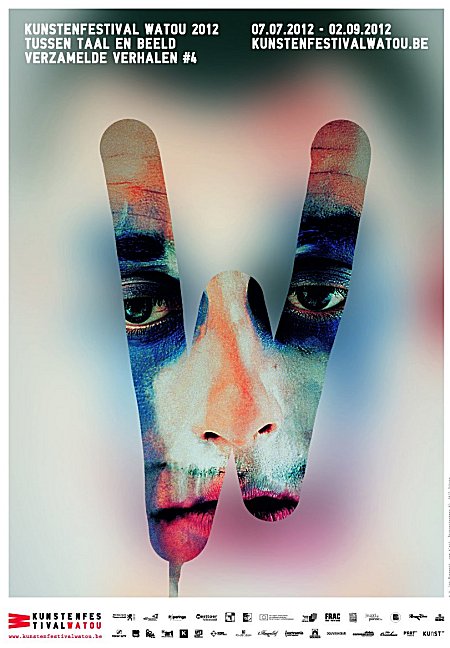
Kunstenfestival Watou 2012
tot en met 2 september 2012
Over toevallige ontmoetingen
en de dingen die niet echt voorbij gaan . . .
Ook bij deze editie trekken poëzie en beeldende kunst een markante lijn door het grensdorp Watou. De deelnemende kunstenaars, dichters, illustratoren en performers zetten een tiental karakteristieke locaties naar hun hand, in een boeiende dialoog Tussen Taal en Beeld.

Deze zomer biedt Watou zich aan als open ontmoetingsplaats tussen kunstenaars, dichters, toeschouwers en lezers. Met als voornaamste resultaat: een conversatie over toevallige ontmoetingen en de dingen die niet echt voorbijgaan…
Adonis – Anna Achmatova – Jehuda Amichai – Werner Aspenström – Nina Beier – Ruben Bellinkx – Gottfried Benn – Elisabeth Bishop – Jorge Luis Borges – Sergey Bratkov – Josip Brodsky – Gaston Burssens – Cees Buddingh’ – Remco Campert – Randall Casaer – Hugo Claus – Mahmoud Darwish – Herman De Coninck – Carlos Drummond de Andrade – Hilde Domin – J. Eijkelboom – Ieva Epnere – Elisabeth Eybers – Hans Faverey – Allen Ginsberg – Robert Graves – Robert Gray – Hamza Halloubi – Judith Herzberg – Andreas Hetfeld – Zhang Huan – Nick Hullegie – John Isaacs – Lêdo Ivo – Ernst Jandl – Wang Jiaxin – Roland Jooris – Tom Jooris – Roberto Juarroz – Jimmy Kets – Jir(í Kovanda – Antjie Krog – Lucebert – Lawrence Malstaf – Hanny Michaëlis – Duane Michals – K. Michel – Boris Mikhailov – Czeslaw Milosz – Bart Moeyaert – Sofie Muller – Matt Mullican – Pablo Neruda – Leonard Nolens – Frank O’Hara – Wim Opbrouck – Ferhat Özgür – Michelangelo Pistoletto – Torbjørn Rødland – Jacques Roubaud – Meggy Rustamova – Fabrice Samyn – Edoardo Sanguinetti – Taryn Simon – Hedwig Speliers – David Troch – Claude Van de Berge – Fritzi ten Harmsen van der Beek – Koen Vanmechelen – Willem van Toorn – Anne Vegter – Alex Verhaest – Laurence Vielle – Charis Vlavianos – Eddy Van Vliet

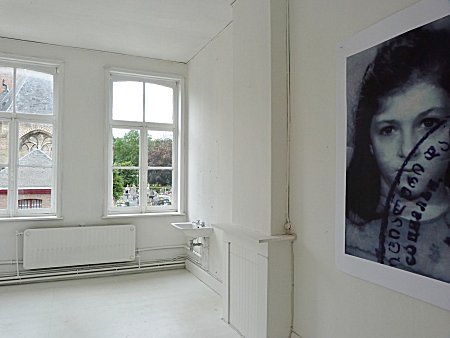
Kunstenfestival Watou tot en met 2 september 2012
≡ Website kunstenfestival Watou
fleursdumal.nl magazine
More in: Art & Literature News, Ernst Jandl, Historia Belgica, Jandl, Ernst, MUSIC, THEATRE, Watou Kunstenfestival

Middeleeuws Iers gedicht
vertaald door Lauran Toorians
Bendacht úaimm for Eithni n-ollguirm,
ingen Domnaill dáiles bir,
oca n-esbius íar cúairt chathrach
for neim nathrach
eire ochtair chethrar bachlach
síthchenn srathrach, srúaimm di mid.
Een zegen van mij over de stralende Eithne,
de dochter van Domhnall die speren rondstrooit.
Met hem dronk ik, na een rondgang door een stad
als een giftige slangenkuil,
genoeg voor tweeëndertig kerels
met pakzadels op hun lange nekken, een sloot mede.
Middeleeuwse Ierse gedichten vertaald door Lauran Toorians
kempis.nl poetry magazine
More in: CELTIC LITERATURE, Lauran Toorians
Thank you for reading Fleurs du Mal - magazine for art & literature